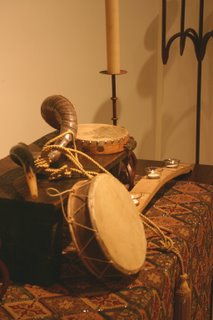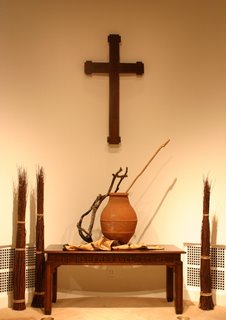Psalms: the heart of worship

The word "worship" has become a chameleon in our day. It morphs and turns into whatever the speaker wants it to mean. It is corporate and individual, it is structured and spontaneous, it is exhuberant and reflective and pensive. Some equate worship with music alone(eg, a church's "worship leader") and others equate worship with the 20-30 minute sermon. Worship styles have become points of contention and debate in churches and even within families.
Modern American christians "shop" for churches that meet their needs. A question often heard asked after Sunday morning worship is "What did you get out of worship today?" A harsh criticism of worship is "I didn't get anything out of worship today, I might as well have stayed home!" Different cultures worship differently. Different denominations champion different worship styles. Different eras in hisotry built different kinds of structures for worship.
Yet, an absolutely vital component of the Big Story from the Big Book is worship. Israel always worshiped. The people of Israel asked to leave Egypt so that they could worship God. Right from the start of their exodus, Moses led the people into worship at Mt. Sinai and the tent of meeting and the travelling tabernacle. Worship was the non-negotiable center for the faith of Israel. It was more important than buildings or even the land. Worship is the key concept to understanding the first four commandments.
On Sunday February 26 the entire theme is worship at the peak of Israel's life, from its richest worship book; the Psalms. It is not so much a Sunday "about" worship, with teaching and instruction. It is a Sunday immersed in worship. The altar wsets the theme by being decorated with instruments of worship and praise from the Psalms: the horn calling people into worship called the "Shofar", a drum and tambourine. The gold tassle speaks of the splendor of the Temple and the rack of candles of the lights indicating the presence of God.
Montecito's worship on February 26th will be a unique departure from our customary format. It will be a steady stream of gifts of praise to God from within the our own community. There will be brass and voices in the choir. There will be the reedy sounds of the saxophone and the strumming of stringed guitars. We will emply the percussion of a drum to punctuate our confession sin and we will join our voices as a whole body in hymns of praise. Our young people will use their bodies in dance to praise God. And we will be given the opportunity to bring our gifts to God in offerings and prayer.
The question for this Sunday will not be"what did you get out of worship?" but "What did you put into worship?"





